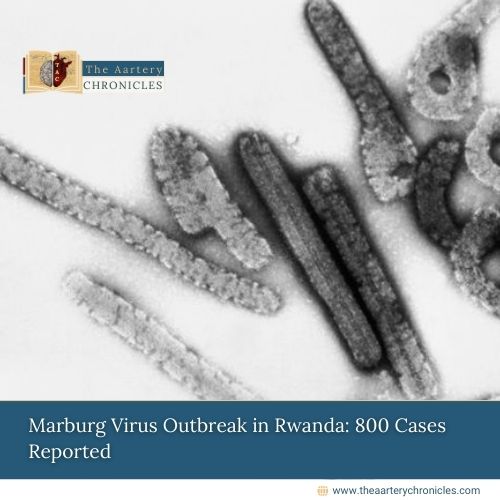

Marburg Virus Outbreak in Rwanda: 800 Cases Reported
Outbreak Details
Rwanda is currently dealing with an outbreak of the highly contagious Marburg virus, which has infected over 800 people and resulted in 15 deaths. The virus, which has no approved vaccine or specific treatment, has spread across seven out of the country’s 30 districts.
Government Response
Rwanda’s Health Minister, Sabin Nsanzimana, announced that the government is ramping up efforts to trace and test people who may have come into contact with infected individuals. Authorities are working to contain the outbreak, the first of its kind in the country.
WHO's Support
World Health Organization (WHO) Director-General, Tedros Adhanom Ghebreyesus, stated on the platform X (formerly known as Twitter) that the WHO is increasing its support to Rwanda. The organization is collaborating closely with the government to stop the spread of the virus.
The WHO’s Rwanda office is preparing to send emergency medical supplies, including infection prevention and control equipment, to the capital city, Kigali, from its Emergency Response Hub in Nairobi, Kenya.
Spread of the Virus in Africa
The Marburg virus has recently been reported in other African countries, including Tanzania, the Democratic Republic of the Congo, Kenya, and South Africa, according to WHO reports.
About the Marburg Virus
The Marburg virus was first identified in 1967 after an outbreak occurred in research laboratories in Marburg, Germany, and Belgrade, Serbia. Researchers were infected after being exposed to the virus while studying monkeys.
The virus is transmitted from fruit bats to humans. It can spread between people through direct contact with the bodily fluids of an infected person, or contaminated surfaces and materials.
Symptoms and Fatality Rate
According to the WHO, symptoms of the Marburg virus include fever, muscle pain, diarrhoea, vomiting, and, in severe cases, death due to extreme blood loss. The virus causes hemorrhagic fever and has a fatality rate of up to 88%, making it highly dangerous. It is part of the same virus family as Ebola.
Conclusion
Rwanda is intensifying its outbreak control measures, and with WHO’s support, the country is focused on containing the virus to prevent further spread. The situation remains critical, and public health authorities are urging continued vigilance.
Source: Inputs from various media Sources

Priya Bairagi
I’m a pharmacist with a strong background in health sciences. I hold a BSc from Delhi University and a pharmacy degree from PDM University. I write articles and daily health news while interviewing doctors to bring you the latest insights. In my free time, you’ll find me at the gym or lost in a sci-fi novel.








